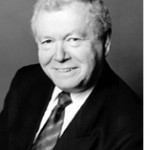By Rabbi Dow Marmur
 JERUSALEM–I’m on the mailing list of an American-born Jerusalemite whose blog seems to be dedicated to bashing US President Obama. I stopped reading it regularly a long time ago but I made an exception today in the hope that, after the United States veto of the proposed Palestinian anti-settlement resolution in the Security Council, the blogger would relent, at least for a moment and say something nice. It was a vain hope.
JERUSALEM–I’m on the mailing list of an American-born Jerusalemite whose blog seems to be dedicated to bashing US President Obama. I stopped reading it regularly a long time ago but I made an exception today in the hope that, after the United States veto of the proposed Palestinian anti-settlement resolution in the Security Council, the blogger would relent, at least for a moment and say something nice. It was a vain hope.
His attack was as vehement as ever. This time he accused the US Administration of, in fact, endorsing the aborted Palestinian resolution despite its veto, because of the accompanying statement by the UN American ambassador that stressed that the veto was in no way supporting Israel’s settlement policy but a way of preventing an indefinite breakdown of peace negotiations that the resolution would lead to.
The blogger speaks, I believe, for many Israelis who’ve decided that Obama is bad for the Jews. The president’s equivocal way of dealing with the present upheavals in the Muslim world encourages his critics. Like all those who are unhappy with the here and now, the anti-Obama gangs hanker after an imagined past, even if it’s recent. In this case it’s the days of George W. Bush.
At the other end of the spectrum, today’s Ha’aretz carries a piece by one of its columnists whom I read but rarely want to quote: Gideon Levy. Today Levy announced that Netanyahu’s Likud has just got a new member: Barack Hussein Obama. Consistent with his usual, sometimes brilliant, rants Levy believes that the UN vote was bad for Israel, because what the country needs is a massive campaign, however harsh, to stop its government from expanding the settlements and building new ones in East Jerusalem.
Levy is right about his opposition to the settlements, but it’s by no means clear that the proposed Security Council resolution would have strengthened his case. There’s much to suggest that it might have had the opposite effect by giving Israeli hard liners the argument that if they hate us in any case, we might just as well do as we please. Perhaps that’s what the United States had in mind by vetoing the resolution.
But whatever the US motives, it’s sadly revealing that people often make up their minds ahead of the evidence. In this case, both sides criticized Obama: the right-winger for not doing enough, the left-winger for doing too much. I hope that the judgment of the government of Israel is more measured, but in view of its composition – foreign minister Lieberman comes to mind, as usual – nothing can be taken for granted.
There’s, of course, another way. Ian McEwan, the British writer who tonight will receive the Jerusalem Prize for Literature, showed it. Instead of yielding to the pressure from pro-Palestinian organizations to refuse the prize and stay away from Israel, he ignored the critics and arrived in the country a couple of days ago. Soon thereafter he joined the Israeli writer David Grossman in a demonstration in Sheikh Jarrah, an East Jerusalem neighborhood that’s being settled by Jewish extremists. He saw his presence there as a more effective way of taking a stand and to celebrate Israeli democracy, even when its elected leaders are morally and politically deficient.
One of the characteristics of extremists is that they’re blind to ambiguities, even though human existence is shaped by them. This good novelist knows it and uses it for his craft – as, perhaps, does the President of the United States.
*
Rabbi Marmur is spiritual leader emeritus of Holy Blossom Temple in Toronto. He now divides his time between Canada and Israel.